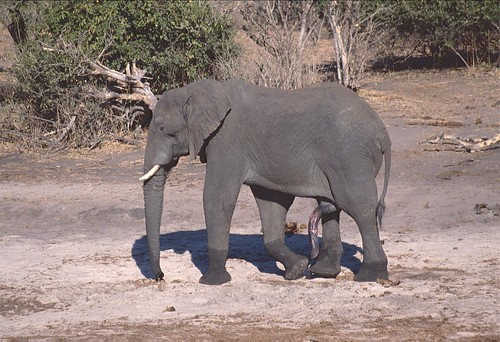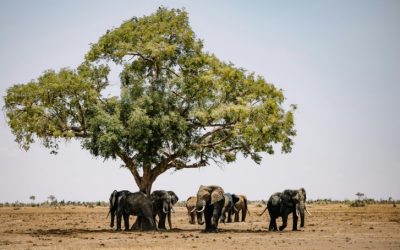Historical Background of Diamonds in Botswana
Botswana’s history with diamonds is a compelling story of transformation and economic development. Since the discovery of significant diamond deposits in the late 1960s, the nation has emerged as one of the world’s leading producers of these precious gemstones. The strategic management of its diamond resources, along with strong government policies and international partnerships, has helped Botswana achieve remarkable growth and stability. This rich historical background has played a crucial role in shaping the country’s modern identity and economic prospects in the global diamond market.
Discovery of Diamonds in Botswana
The history of diamonds in Botswana is a story deeply intertwined with the country’s development and economic growth. For many years, Botswana relied heavily on agriculture and cattle farming, but the discovery of diamonds transformed its landscape and national prospects.
- Diamond discovery in Botswana began in the late 1960s, shortly before the country’s independence from British rule in 1966.
- The first significant diamond find was at Orapa in 1967, which marked the start of Botswana’s emergence as a major diamond producer.
- De Beers, a leading global diamond company, played a crucial role in developing Botswana’s diamond industry through joint ventures and investments.
- The establishment of the Botswana Diamond Corporation and the formation of Debswana in 1969 helped to oversee and manage the diamond extraction and sales process.
- These discoveries and strategic partnerships laid the foundation for Botswana to become one of the world’s top diamond producers, greatly influencing its economic trajectory.
Development of the Diamond Industry
Diamonds have played a pivotal role in Botswana’s history, transforming the nation from one of the poorest countries in Africa to one of the wealthiest per capita. The discovery of diamonds in the country in 1967, just before independence from British colonial rule, marked a turning point in its development. The government of Botswana, under the leadership of President Seretse Khama, strategically partnered with international companies such as De Beers to develop a sustainable and controlled diamond industry. This partnership enabled Botswana to establish its own diamond trading and processing infrastructure, ensuring that the benefits of the mineral wealth remained within the country. Over the decades, the industry has grown significantly, with the establishment of major mines like Orapa, Letlhakane, and Jwaneng, which are among the richest diamond mines in the world. The development of the diamond industry has contributed substantially to Botswana’s economy, funding social programs, infrastructure projects, and efforts to promote economic diversification, securing a better future for its citizens. Today, Botswana is recognized globally for its responsible diamond mining and its ability to leverage natural resources for national development.
Key Milestones in Industry Growth
Diamonds have played a pivotal role in Botswana’s history and economic development. The discovery of diamonds in the country in the late 1960s marked a turning point, transforming Botswana from one of the poorest nations into one of Africa’s wealthiest countries. The government’s strategic management of diamond resources, through partnerships with international companies, helped ensure that the wealth generated benefited the broader population.
Key milestones in the industry include the establishment of the Debswana Mining Company in 1969, a joint venture between the government of Botswana and De Beers, which became instrumental in identifying and extracting diamonds. The signing of the Kimberley Process Certification Scheme in 2003 further helped Botswana maintain a reputable and conflict-free diamond industry. Additionally, the opening of the Jwaneng Diamond Mine in 1982, one of the world’s richest, marked significant growth in production capacity. Over the decades, Botswana has consistently increased its diamond output, making the country a major global player in the diamond trade, with revenues fueling economic diversification and social development efforts.
Diamond Mining Regions in Botswana
Botswana is renowned worldwide for its rich diamond deposits, making it one of the leading producers of diamonds in Africa. The country’s diamond mining regions are primarily located in the Orapa, Jwaneng, Letlhakane, and Karowe areas, which are home to some of the world’s largest and most prolific diamond mines. These regions play a crucial role in Botswana’s economy, contributing significantly to national revenue and employment, while also attracting international investment in the gemstone industry.
Jwaneng Mine
Botswana is renowned for its rich diamond mining industry, which plays a crucial role in the country’s economy. The Jwaneng Mine, located in central Botswana, is one of the world’s most significant and valuable diamond mining sites. It is often referred to as the world’s richest diamond mine based on the value of the diamonds extracted. The region around Jwaneng is characterized by its extensive alluvial deposits and kimberlite pipes, making it an ideal location for diamond exploration and mining. The mining operations are largely operated by Debswana, a joint venture between the Botswana government and De Beers, ensuring that the wealth generated benefits the nation. The Jwaneng Mine has advanced technological facilities that enable efficient extraction and processing of diamonds, contributing to Botswana’s reputation as a leading diamond producer globally.
Orapa Mine
Botswana is renowned for its rich diamond resources, making it one of the world’s leading diamond producers. The country has several significant diamond mining regions, with the Orapa Mine being the largest and most famous. Located in the Central District, the Orapa Mine is operated by Debswana, a joint venture between the Botswana government and De Beers. Opened in 1971, it is one of the world’s largest bulk minable diamantiferous kimberlite pipes, contributing substantially to Botswana’s economy. The Orapa Mine is known for its extensive open-pit operations and high-quality diamond output, which are central to Botswana’s reputation as a major player in the global diamond industry. Other significant mining areas include Jwaneng, also operated by Debswana, which is considered the world’s richest diamond mine, and Letlhakane. These regions together underscore Botswana’s importance in the global diamond market and its strategic focus on sustainable resource management.
Letlhakane Mine
Botswana is renowned for its rich diamond deposits, making it one of the world’s leading diamond producers. The country’s diamond mining regions are primarily concentrated in key areas that have contributed significantly to its economy. One of the most notable mines is the Letlhakane Mine, which plays a vital role in Botswana’s diamond industry.
- Letlhakane Mine: Located in the Central District of Botswana, the Letlhakane Mine is a prominent diamond mine operated by Debswana, a joint venture between the government of Botswana and De Beers. It primarily produces kimberlite pipes rich in gem-quality diamonds.
- Orapa Mine: Known as one of the largest diamond mines in the world, Orapa is also managed by Debswana. It covers a vast area and has been a major contributor to Botswana’s diamond output since the 1970s.
- Jwaneng Mine: Often referred to as the world’s richest diamond mine in terms of value, Jwaneng is located in the southern part of the country and is operated by Debswana. Its high-quality diamonds are highly sought after globally.
- Letlhakeng Mine: This is a smaller but notable diamond site within Botswana, contributing to the nation’s diverse mining operations.
These regions collectively contribute to Botswana’s reputation as a leading global producer of high-quality diamonds, supporting the country’s economic growth and development.
Other Notable Deposits
Botswana is renowned for its extensive diamond mining regions, notably the Orapa, Jwaneng, Lethakane, and Karowe deposits. The Jwaneng Mine is often considered the world’s richest diamond deposit by value, playing a crucial role in Botswana’s economy. Orapa, one of the largest diamond mines globally, has significantly contributed to Botswana’s reputation as a leading diamond producer. These regions are characterized by their high-quality gem diamonds and advanced mining techniques that ensure sustainable extraction.
Aside from the major deposits in Botswana, other notable diamond deposits include the Letlhakane and Damtshaa mines, which complement the country’s diamond industry. These sites host substantial quantities of diamonds and are vital to maintaining the nation’s position in the global market. International companies often collaborate with Botswana’s government to explore and develop these deposits, ensuring continued growth and the recovery of high-value gemstones.
Economic Impact of Diamonds in Botswana
Diamonds play a vital role in Botswana’s economy, contributing significantly to national revenue and development. The country’s rich diamond deposits have transformed it into one of the world’s leading producers of the precious stones. This sector has not only spurred economic growth but also generated employment and infrastructure development, making diamonds a key driver of Botswana’s prosperity and global economic presence.
Contribution to GDP
The diamond industry plays a crucial role in Botswana’s economy, significantly contributing to the country’s Gross Domestic Product (GDP). As one of the world’s leading producers of diamonds, Botswana derives substantial revenue from diamond mining and exports, which supports various sectors including infrastructure, healthcare, and education. This robust contribution helps promote economic stability and development within the nation. The government’s strategic management of diamond resources has enabled Botswana to achieve steady economic growth and reduce dependence on other volatile sectors. Furthermore, the revenue generated from diamonds has fostered infrastructure improvements and social programs, benefiting the broader population and enhancing overall economic resilience.
Employment Opportunities
The diamond industry plays a crucial role in Botswana’s economy, significantly contributing to national income and economic growth. Through the extraction and export of diamonds, the country has established itself as one of the world’s leading diamond producers, which has attracted substantial foreign investment. This industry generates a considerable number of employment opportunities across various sectors, including mining, processing, and related services. Local communities benefit from jobs directly linked to diamond operations, as well as from increased demand in ancillary industries such as transportation, security, and retail. Moreover, the revenue generated from diamond mining enables the Botswana government to fund social programs, infrastructure development, and education, fostering overall economic stability and development.
Foreign Investment and Revenue Generation
Diamonds have played a crucial role in shaping Botswana’s economy, serving as a major driver of economic growth and development. The country’s rich diamond reserves attract substantial foreign investment, which bolsters infrastructure, creates employment opportunities, and enhances technological advancements within the nation. Revenue generated from diamond mining significantly contributes to national budgets, funding public services and social programs. This sector’s success has positioned Botswana as one of the leading producers of diamonds globally, fostering economic stability and fostering long-term prosperity for its citizens.
Diamond Industry Governance and Policy
The diamond industry in Botswana exemplifies a strategic approach to governance and policy that balances economic growth with sustainable development. Recognized for its significant contribution to the country’s revenue, employment, and global reputation, Botswana has implemented policies to regulate diamond mining, ensure transparency, and promote responsible sourcing. Effective governance in this sector is essential to maximize benefits for citizens while maintaining ethical standards and environmental stewardship, positioning Botswana as a leading player in the global diamond industry.
Role of Debswana Partnership
The diamond industry in Botswana is heavily governed through a combination of national policies and international partnerships, ensuring sustainable development and economic stability. Debswana, a joint venture between the Botswana government and De Beers, plays a crucial role in this governance framework. It serves as the main entity responsible for diamond mining operations, promoting responsible resource management, transparency, and ethical practices within the industry. The partnership enables Botswana to maximize the benefits of its diamond resources, including revenue generation, employment, and infrastructural development, while adhering to strict governance policies that support environmental sustainability and social responsibility. Overall, Debswana’s role exemplifies how strategic partnerships can effectively strengthen governance and policy implementation in Botswana’s diamond sector, contributing to the nation’s economic growth and global reputation as a leading diamond producer.
Government Regulations and Licensing
In Botswana, the diamond industry is a cornerstone of the national economy, necessitating robust governance and clear policies to ensure sustainable development. Government regulations and licensing mechanisms play a vital role in maintaining transparency, ethical standards, and fair trade practices within the industry. The Botswana government controls diamond mining and sales through state-owned entities such as the Botswana Democratic Agency and Debswana, a joint venture with De Beers, to regulate production and prevent illegal mining and sales. Licensing procedures are stringent and designed to monitor all stakeholders involved in the diamond supply chain, from exploration to export. These policies aim to maximize benefits for the country, protect workers’ rights, and uphold environmental standards while fostering investor confidence. Overall, effective governance and regulatory frameworks are essential for preserving Botswana’s reputation as a responsible and leading diamond producer on the global stage.
Ethical and Sustainable Practices
Botswana’s diamond industry exemplifies a committed approach to governance, policy, and ethical practices that promote sustainable development and responsible sourcing. The government has established robust regulatory frameworks to ensure transparency, fairness, and accountability within the sector, working closely with international organizations to adhere to global standards.
Ethical practices are prioritized through strict compliance with Kimberley Process Certification Scheme requirements, which aim to prevent conflict diamonds from entering the global market. Botswana’s diamond industry also emphasizes fair labor practices and community engagement, ensuring that local populations benefit from resource wealth.
Sustainable practices are at the core of Botswana’s approach, with initiatives focused on environmental conservation and responsible mining techniques. The country invests in eco-friendly technologies and promotes long-term economic diversification to reduce reliance on diamond revenues, supporting sustainable growth for future generations.
Overall, Botswana’s governance and policies in the diamond industry serve as a model for ethical and sustainable resource management, balancing economic prosperity with social and environmental responsibility.
Technological Advancements in Diamond Mining
Botswana has emerged as a global leader in diamond mining, benefiting from significant technological advancements that have transformed the industry. Innovations such as automated excavation equipment, advanced ore sorting technologies, and sustainable mining practices have increased efficiency and reduced environmental impact. These advancements not only boost production but also ensure responsible management of Botswana’s valuable diamond resources, solidifying its position in the international market.
Mining Techniques and Equipment
Botswana has become a global leader in diamond mining, leveraging cutting-edge technological advancements and innovative mining techniques to optimize extraction processes. These advancements have played a crucial role in maintaining the country’s position as a top diamond producer while ensuring sustainable and efficient operations.
- Automation and robotics are increasingly integrated into mining operations, enabling precise and efficient extraction while reducing human risk.
- Advanced geological surveying tools, such as 3D seismic imaging and geospatial analysis, enhance the accuracy of locating diamond-rich kimberlite pipes beneath the surface.
- Modern drilling equipment, including computer-controlled drill rigs, allows for more precise excavations with minimal environmental disturbance.
- Dense media separation and X-ray sorting technologies are used for rapid gemstone identification and sorting, increasing throughput and reducing wastage.
- Enhanced ventilation and dust suppression systems improve working conditions in underground mines, aligning with health and safety standards.
- Data analytics and real-time monitoring systems enable better decision-making, predictive maintenance, and operational efficiency across mining sites.
These technological advancements continue to transform Botswana’s diamond mining industry, ensuring sustainable growth and maintaining its reputation as a major hub for high-quality diamonds.
Innovation in Diamond Sorting and Grading
Botswana has emerged as a leading hub for diamond mining, leveraging technological advancements to enhance efficiency and sustainability. Innovation in diamond sorting and grading has significantly transformed the industry, allowing for higher accuracy and quicker processing times. These technological improvements have helped Botswana maintain its reputation as a reliable source of high-quality diamonds while promoting responsible mining practices.
- Implementation of AI and machine learning algorithms for precise sorting and grading of rough diamonds, reducing human error and increasing speed.
- Use of X-ray transmission (XRT) technology to accurately identify internal features and estimate the value of rough stones.
- Automated sorting systems that utilize robotics and sensor technologies to streamline the classification process.
- Digital grading platforms that provide standardized, transparent assessments and facilitate global trade.
- Integration of blockchain technology to enhance traceability and ensure ethical sourcing of diamonds in Botswana’s supply chain.
Environmental Management Technologies
Technological advancements in diamond mining and environmental management have significantly transformed the industry in Botswana, one of the world’s leading diamond producers. These innovations aim to improve efficiency, safety, and sustainability, ensuring that diamond extraction aligns with environmental conservation efforts.
- Automated and Robotics Technologies: The integration of automated drilling, robotic excavation, and autonomous vehicles has enhanced precision and reduced labor costs while minimizing environmental disturbance.
- Seismic and Geophysical Surveying: Advanced seismic imaging and geophysical techniques allow for more accurate identification of diamond-bearing deposits, reducing unnecessary excavation and conserving natural resources.
- Remote Sensing and Satellite Imaging: Satellite technology provides real-time monitoring of mining sites, helping to track environmental changes and ensure compliance with environmental standards.
- Water Recycling and Treatment Technologies: Innovations in water management, such as closed-loop recycling systems and advanced filtration methods, mitigate water usage and prevent contamination of local water bodies.
- Green Mining Practices: Adoption of eco-friendly mining methods, including the use of renewable energy sources like solar and wind power, reduces carbon emissions and enhances sustainability in Botswana’s diamond industry.
- Environmental Impact Assessment (EIA) Technologies: Increased use of digital tools and GIS mapping for comprehensive environmental impact assessments helps in planning mining activities that are less invasive to ecosystems.
- Environmental Management Systems (EMS): Implementation of advanced EMS software ensures continuous monitoring, reporting, and improvement of environmental performance in mining operations.
- Bioremediation Techniques: Use of biological agents to detoxify contaminated sites is gaining popularity, promoting ecological restoration after mining activities.
- Dust Control Technologies: Innovations like misting systems and dust suppressants help improve air quality around mining sites, reducing health risks for workers and local communities.
These technological advancements, driven by global innovation and Botswana’s commitment to sustainable development, position the country as a leader in responsible diamond mining, balancing economic growth with environmental stewardship.
Global Market and Botswana’s Diamond Exports
Botswana is renowned for its vital role in the global diamond industry, with the gemstone serving as a cornerstone of the country’s economy. As one of the world’s leading exporters of rough diamonds, Botswana’s market strategies and export performance significantly influence international trade dynamics. The country’s commitment to sustainable and ethical diamond mining has strengthened its reputation in the global marketplace, making it a key player in the global market for precious stones.
International Demand and Trends

Botswana is recognized as one of the world’s leading diamond producers, contributing significantly to the global market with its high-quality rough diamonds. The international demand for Botswana’s diamonds remains strong, driven by a thriving luxury jewelry sector and increasing consumer interest in rare gemstones. Trends in the global diamond market indicate a shift towards ethically sourced and sustainable diamonds, which aligns well with Botswana’s commitment to responsible mining practices. Additionally, technological advancements and market diversification efforts continue to bolster Botswana’s position, ensuring steady growth and resilience amidst fluctuating global economic conditions.
Major Export Markets
Botswana is renowned for its thriving diamond industry, which significantly contributes to the country’s standing in the global market. The nation’s diamonds are highly prized and form a substantial portion of its export revenue, positioning Botswana as one of the leading diamond producers worldwide. The global demand for high-quality diamonds supports Botswana’s economic growth and development.
In the global market, Botswana’s diamonds are primarily exported to major markets such as India, Belgium, and Israel. India is a key destination for raw and rough diamonds, while Belgium, especially Antwerp, serves as a major hub for processing and trading polished diamonds. Israel also plays an important role in diamond cutting and trading. These markets facilitate Botswana’s integration into the international diamond trade network and ensure continuous demand for its precious stones.
Pricing and Market Dynamics
Botswana is a leading global player in the diamond industry, benefiting significantly from its rich diamond reserves and strategic market positioning. The country’s diamond exports have historically contributed a substantial portion of its revenue, making it one of the world’s top diamond producers by value. Market dynamics in the global diamond industry are influenced by factors such as demand from major consumers like China and India, fluctuations in gemstone prices, and the overall economic health affecting consumer spending on luxury goods. Pricing in the diamond market is often determined by factors including carat weight, cut, clarity, and color, with high-quality stones fetching premium prices. Botswana’s diamond industry operates through partnerships with major international mining companies and the Diamond Trading Company, helping to maintain stable pricing and supply. Despite challenges such as market volatility and changing consumer preferences, Botswana continues to adapt by investing in value-added processing and marketing efforts to sustain its position in the global market. Overall, the country’s strategic management of its diamond resources and the evolving global demand shape the dynamic landscape of Botswana’s diamond exports and pricing strategies.
Sustainability and Future Outlook
Sustainability and the future outlook are crucial considerations for Botswana, a country renowned for its rich diamond resources. As the global community increasingly emphasizes responsible resource management, Botswana faces the challenge of balancing economic growth with environmental preservation and social development. The nation’s strategic approach to mining practices and investment in sustainable initiatives will play a vital role in shaping its future, ensuring that diamonds continue to contribute to long-term prosperity while safeguarding its natural and social environment.
Challenges Facing the Diamond Industry
Sustainability and future outlook in Botswana’s diamond industry are increasingly centered around responsible mining practices and environmental conservation. As the country is one of the world’s leading diamond producers, ensuring ethical sourcing and minimizing ecological impact are vital for long-term industry viability.
Challenges facing the diamond industry in Botswana include resource depletion, fluctuating global demand, and concerns over environmental and social impacts. Additionally, maintaining a balance between economic growth and environmental sustainability remains a critical issue. Technological advancements and adoption of eco-friendly mining methods are essential to address these challenges and secure a sustainable future for Botswana’s diamond sector.
Strategies for Sustainable Growth
Sustainability and future outlook in Botswana’s diamond industry are centered on implementing innovative strategies that promote responsible mining, environmental conservation, and economic diversification. As one of the world’s leading diamond producers, Botswana recognizes the importance of balancing economic growth with ecological and social responsibilities to ensure long-term prosperity. Future growth depends on technological advancements, sustainable resource management, and fostering partnerships that support community development and environmental sustainability.
Strategies for sustainable growth in Botswana’s diamond sector include investing in eco-friendly mining practices, developing value-added processing industries within the country, and enhancing regulatory frameworks to ensure ethical sourcing. Additionally, diversifying the economy beyond diamond mining into sectors such as tourism and agriculture will reduce dependency on a single resource. Collaboration with international organizations and stakeholders is essential to adopt best practices, reduce environmental impact, and promote social inclusivity, ensuring that the benefits of diamond wealth are widely shared while preserving natural heritage for future generations.
Potential for Diamond Exploration and Expansion
Sustainability and future outlook for diamond exploration and expansion in Botswana present both significant opportunities and challenges. As one of the world’s leading diamond producers, Botswana has demonstrated a strong commitment to sustainable mining practices, ensuring environmental preservation and community development are prioritized alongside economic growth. Advances in technology and exploration methods promise to uncover new deposits, extending the lifespan of existing mines and opening doors to new discoveries.
The potential for diamond exploration in Botswana remains substantial, especially in lesser-explored regions that could harbor valuable deposits. Collaborations between government bodies, mining companies, and local communities are vital to fostering responsible expansion, ensuring that resource benefits are equitably distributed. Moving forward, integrating innovative, eco-friendly mining techniques and strengthening regulatory frameworks will be key to maintaining Botswana’s status as a global leader in the diamond industry while promoting sustainable growth.





0 Comments